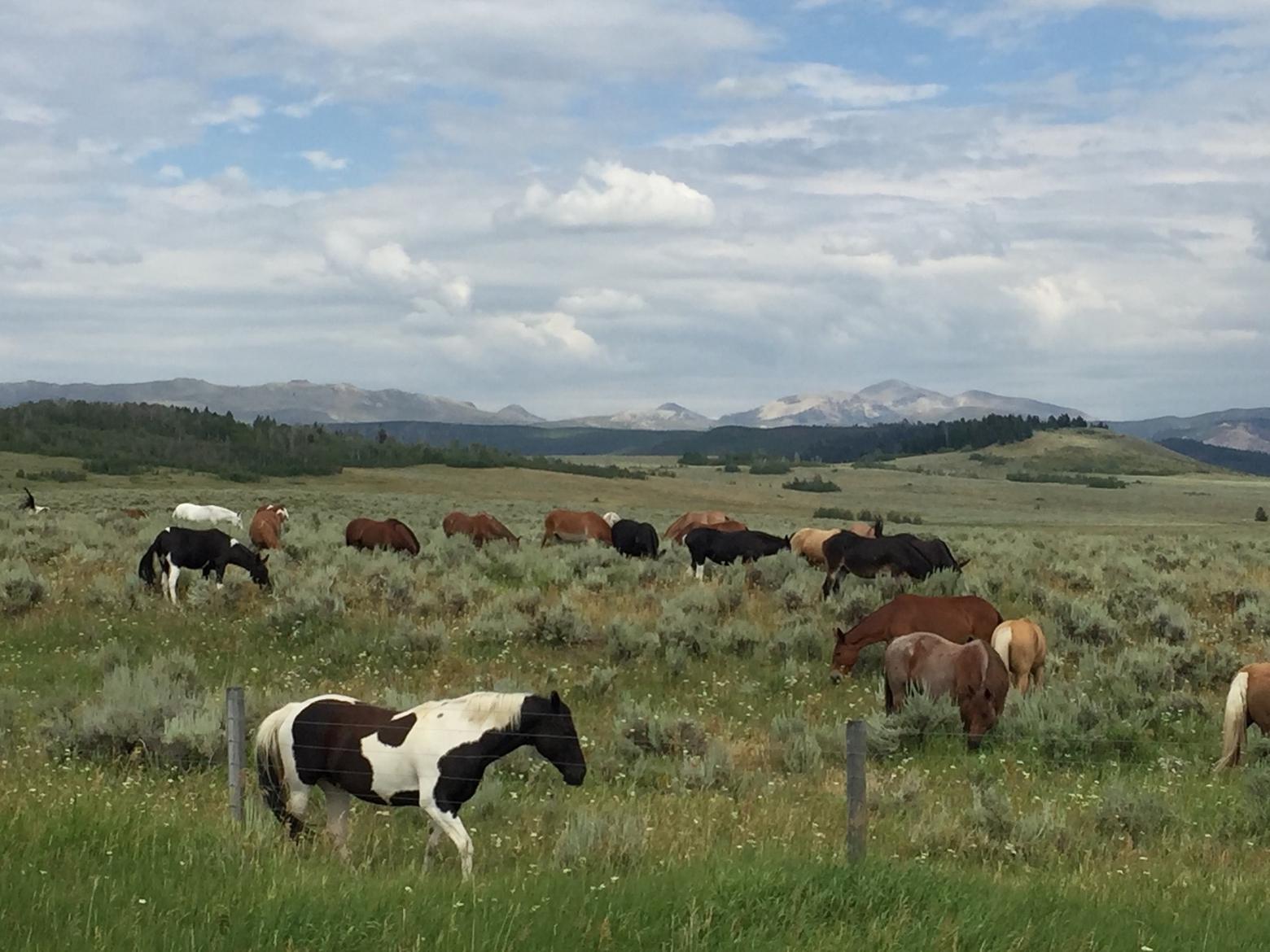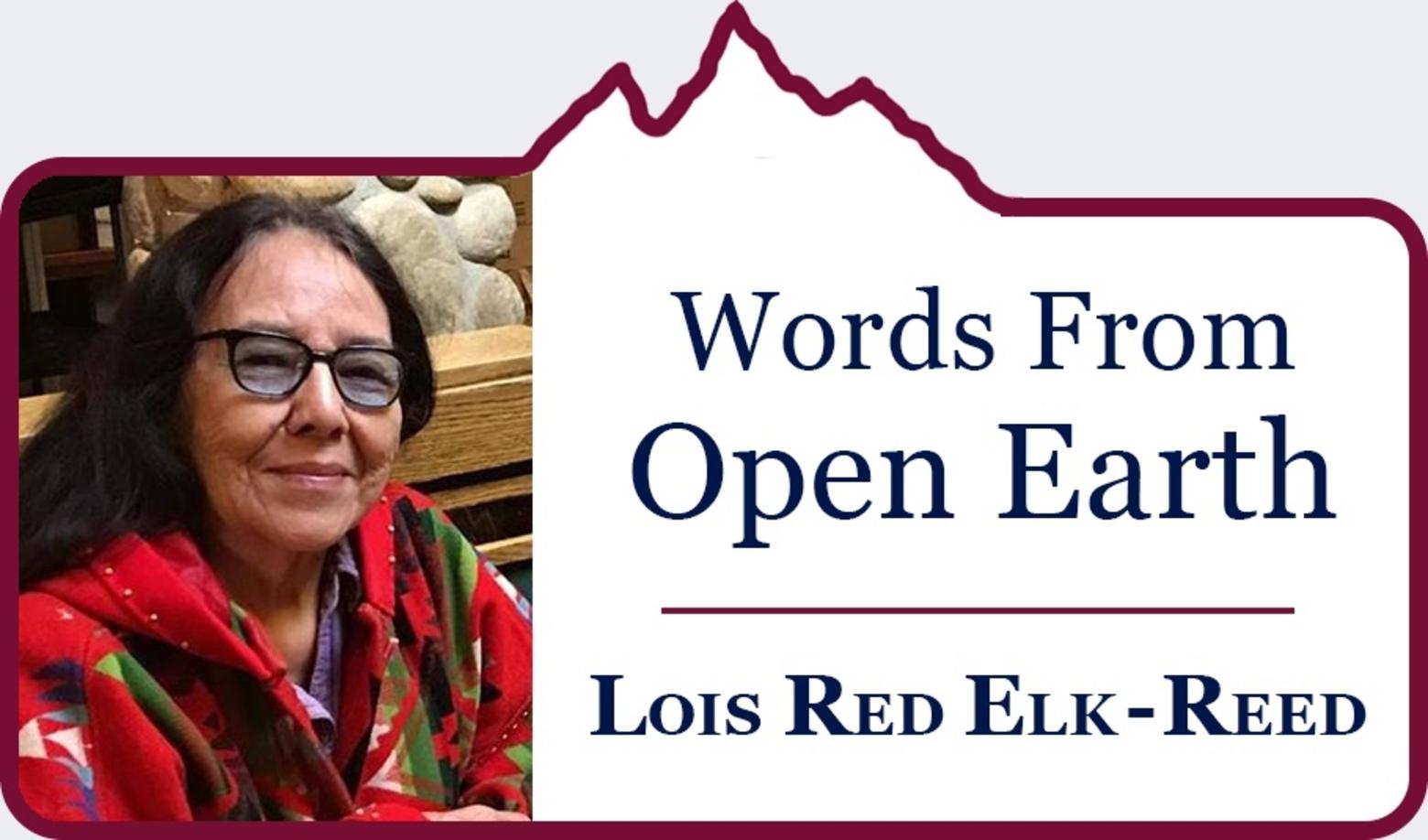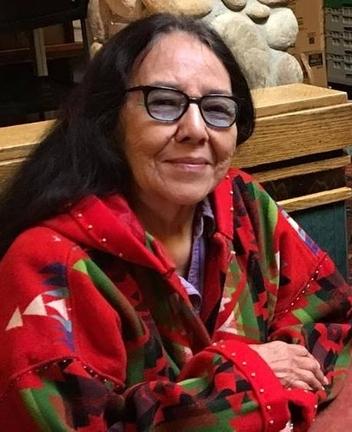Back to StoriesLois Red Elk Writes About Ponies—And Remembers Her Horseman Father
September 20, 2017
Lois Red Elk Writes About Ponies—And Remembers Her Horseman FatherMoJo's Poet In Residence Shares A New And Older Poems, Both Exploring Two Powerful Forces In Her Life
EDITOR'S NOTE: Mountain Journal is delighted to help Lois Red Elk-Reed debut a brand-new poem "Parallel Horses: A lesson from my father, the horse man" and another equine-focused poem, "Sunka Wakan Pejuta (Horse Medicine)" from her acclaimed volume Why I Return To Makoce.
Parallel Horses
A lesson from my
father, the horse man
One
Horse Owner gave me
this
story of the spirit of a horse,
they
are powerful and elusive and
can
only be harnessed with promises
of
water forever pure and flowing.
He
said the horse was Wakan
a
sacred being that leaned
into
our space for our witness, a
kind
of teaching to feed our spirit
One
Horse Owner said we were
to
learn from this 4-legged, by
learning
to ride when spirits talk
to
us. You know, the kind of spirit
that
wakes you in the night
to
remind you that you dream
and
walk lightly on earth,
for
purpose, for messages
now
and then, slowly, less we
be
frightened away by the power.
One
Horse Owner said the way
to
ride this horse is to rekindle
relationship
with all our spirits,
test
each one for a particular strength.
The
sharing spirit will be the one
the
Wakan horse will acknowledge,
will
allow you to ride in parallel time.
One
Horse Owner said you will
see
images of yourselves in dreams,
you
and the horse, on the prairie,
in
the sky, through rain and snow.
If
you don’t see images, then you
have
to pray. Pray for an extention
to
your dream. It will come, that
is
how you prepare, that is how you
will
know you can ride a horse.
©Lois
Red Elk
Sunka
Wakan Pejuta (Horse Medicine)
I
can still see him, leaning on the railing,
enjoying
the air, the track and the fortune.
From
the bare back rides on the flats
of
his country home to the smartly dressed
jockeys
of the city tracks he would find a race.
Wagering
a good amount of his pay check
didn’t
faze him at all. He knew horses
as
well as any. When he was at the track,
he
would pick a horse, then in his mind,
paint
symbols of speed on their hind legs.
He
called it his horse medicine. I know his
little
herd of Indian ponies ran around
in
his memories and shared horse songs.
He
said, it was all about looking the horse
in
the eye, recognizing a relative, sensing the
wild
side of their lives. He said horses told
him
secrets
of the flow of air, the working of muscle
and
relying on spirit. You see, dad spoke and
listened
to the dialect of the horse nation.
Before
the race, he made sure to visit the stalls,
check
out the nostrils and legs, feel their chest,
their
pulse, then hurry to place his bet. At times
mom
and we girls would meet him at the tracks
and
watch his smile as his horse would make its move.
We
would jump up and down, shouting and urging,
and
dad would just keep smiling. I would
search his
face
for expression, for some secret horse exchange,
but
it was always a look of confidence that his own
horse
spirit was racing along, moving up and winning.
©Lois
Red Elk
From, Why I Return to Makoce, Many Voices Press, 2015
Published
in Whitefish Review




